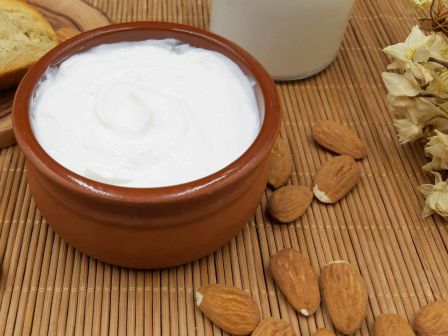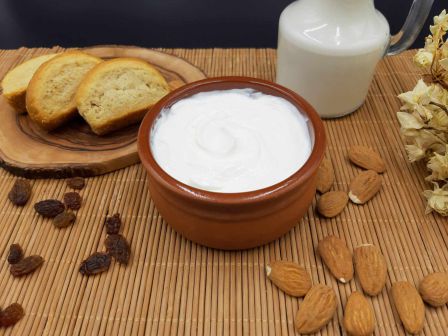Since ancient times, yogurt has been an integral part of the Greek diet. They called it "hygiarto," because they considered it a food very rich in nutrients. Yogurt (from the Turkish word "yogurt") is milk that has undergone fermentation. It came to us from the Middle East and is a beneficial food for the digestive, gastroenterological, and nervous systems. A bowl of traditional yogurt helps us cover a significant part of the recommended daily dietary protein, which our body uses to properly build muscles, bones, joints, skin, hair, etc., as well as 20% of the daily intake of vitamin B12. Traditional yogurt is also rich in potassium, sodium, and probiotics. Probiotics are friendly bacteria that help us reduce stomach and intestinal problems and strengthen our immune system. Additionally, its high calcium content lays the foundation for strong bones, teeth, and protects adults from osteoporosis. It is a nutritious start to our day, as well as a good snack or a meal after intense strain on the body (manual labor, training, etc.). It is a good source of iodine that aids in the proper functioning of the thyroid. Extremely digestible, as milk takes 4 hours to pass through the digestion process, while yogurt takes only 1, and its absorption by the intestine is faster. It prevents urinary bladder infections, kills various harmful organisms in the intestine, and helps in the regeneration of its flora. It is beneficial for smokers and those who consume large amounts of alcohol because it protects the stomach's mucous membrane.
In Greece, you can find it available in many types such as cow's, sheep's, goat's, and buffalo's. Strained, dessert-style, with fruits, with nuts, with biscuits, with cereals, etc.
It's a staple ingredient in cooking preparations for dishes, sauces, desserts, and sweets, but also for smoothies, etc.
LATEST RECIPES
GET LATEST UPDATES
Newsletter Subscribe
FEATURED ARTICLE

GET LATEST UPDATES
Newsletter Subscribe
























































































